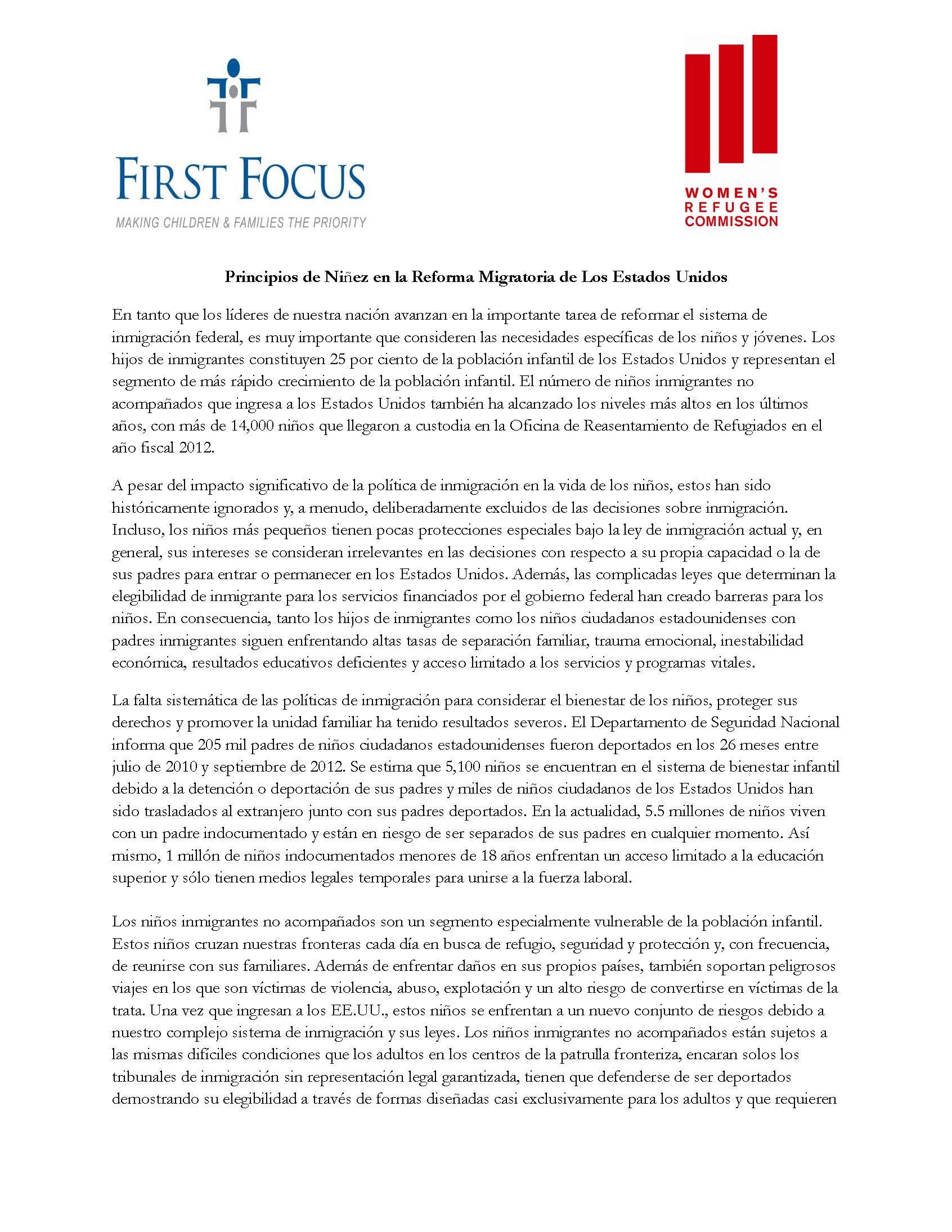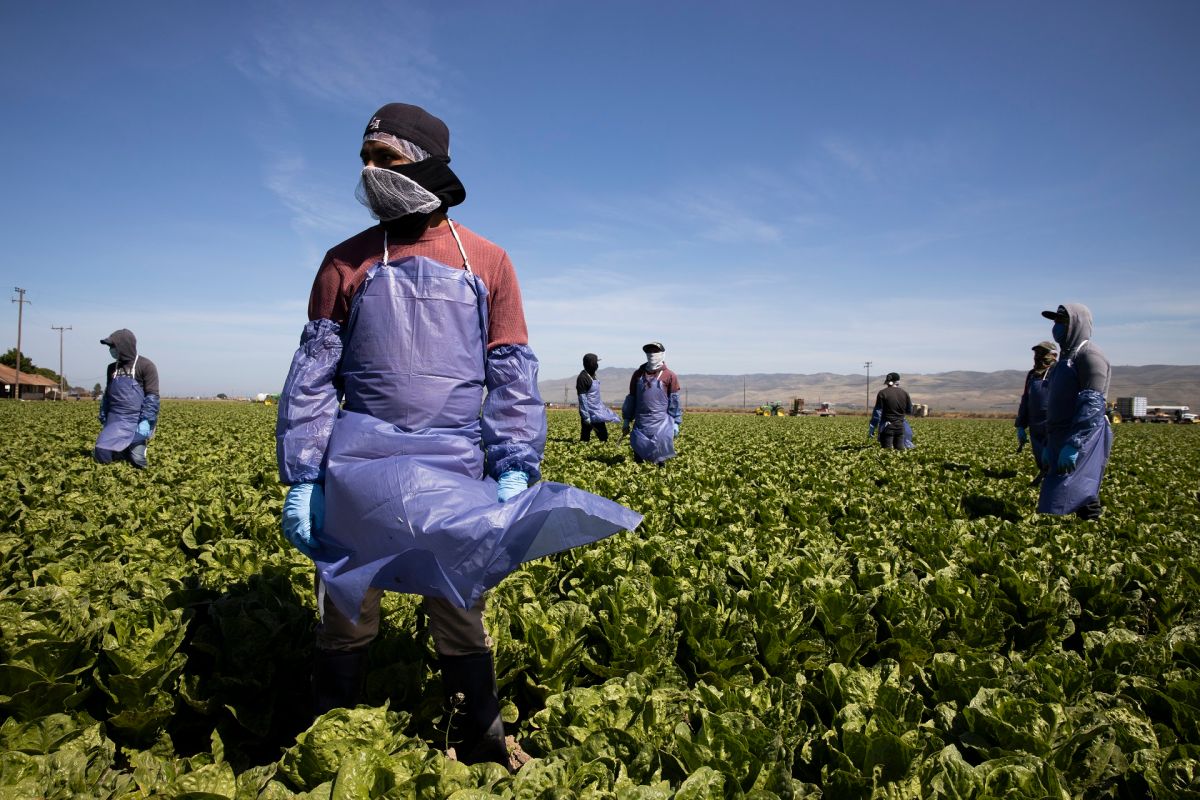Reforma Migratoria - What's Happening With Immigration Rules
There's been quite a buzz lately about some really big changes coming to Argentina's immigration setup. These are the latest bits of news about how the country handles people coming in, what's happening with things like TPS, DACA, asylum requests, and all the connected details that fall under the banner of a "reforma migratoria." It's a topic that touches many lives, and it's something a lot of folks are trying to keep up with, you know, as things unfold.
Apparently, a new official paper, known as Decree 366/2025, from the national government has put into place some pretty significant updates. This new set of rules looks to make the conditions for people from other countries to live there on a long-term basis a bit more strict, while also trying to make certain processes a little smoother. It’s a mix of different aims, so, it’s worth looking at what each part means for people.
This article will take a closer look at these new adjustments, breaking down what they mean for people, where they came from, and what has been said about them. We'll explore the main points of this "reforma migratoria," including how it might change access to public services and the path to becoming a citizen. We'll also touch on some of the past attempts at similar rule changes, giving a bit of background to the current situation, as a matter of fact.
- Miniature Cows
- Is Carrie Underwood Pregnant
- Kyril Louis Dreyfus
- Anne Hathaway Catwoman
- When Is Memorial Day 2025
Table of Contents
- What's Happening with Argentina's Reforma Migratoria?
- The New Rules and Official Papers for Reforma Migratoria
- Key People Talking About Reforma Migratoria
- The Immediate Impact of the Reforma Migratoria Announcement
- How Do These Changes Affect People Day-to-Day?
- Health and Education Access Under Reforma Migratoria
- Rules for Living and Citizenship with Reforma Migratoria
- Has Argentina Seen Similar Reforma Migratoria Efforts Before?
- What's the Bigger Conversation Around Immigration Policy?
What's Happening with Argentina's Reforma Migratoria?
Argentina has recently put into motion some big changes to its rules about who can come into the country and how long they can stay. These updates, which many are calling a "reforma migratoria," were made public just a little while ago, and they've certainly caught the attention of many people. The government, through an official paper, has laid out these adjustments, and they cover a range of things, from getting a place to live in the country to what happens if someone has been found guilty of a crime. It's a rather broad set of updates, so, it's worth getting a clear picture of what's involved.
The New Rules and Official Papers for Reforma Migratoria
The government made these adjustments official on a Thursday, naming them a "decree of necessity and urgency." This means they were put into effect without the usual process of going through the country's law-making body, which is a detail worth noting. Through the official government publication, the country's top office confirmed the changes that had been talked about for some time. A lot of the focus was put on services like health care and schooling, and also on people from other countries who have been found guilty of a crime. This "reforma migratoria" brings in new reasons why someone might be asked to leave the country, puts limits on who can live there for good, and makes access to public services dependent on whether someone is a permanent resident. It’s almost as if the rulebook for living in the country has been given a thorough going-over, you know.
One of the initial changes affects a part of the existing law, specifically article 6. The original wording said that the country, across all its different areas, would make sure that people from other places had the same access to care, safety, and rights as citizens. This was always in line with the usual rights and duties. The new "reforma migratoria" changes this, so, it's something people are looking at closely. The government of Argentina, led by President Javier Milei, is working on a new set of rules for people coming into the country. They want to change how things are done before the end of 2025. This new approach aims to reshape the way the country deals with people from other places. It's a very active effort to update how things are managed, as a matter of fact.
- Cbs Has Canceled Six Shows Before The 2025 2026 Season
- Toy Shack Las Vegas
- 007 %E0%B9%80%E0%B8%9E%E0%B8%8A%E0%B8%8C%E0%B8%86%E0%B8%B2%E0%B8%95 %E0%B8%9B%E0%B8%A5%E0%B8%B2%E0%B8%AB%E0%B8%A1%E0%B8%81 %E0%B8%A2%E0%B8%81%E0%B8%A9
- Iowa State Fair
- X Movie Cast
Key People Talking About Reforma Migratoria
When we talk about the current "reforma migratoria," certain names come up quite often. President Javier Milei has, in the past few weeks of May 2025, mentioned several times that he would put in place changes to immigration rules. His ideas were mostly centered on public health services and higher education, and also on making it easier to send people out of the country. These ideas have now been made official. Manuel Adorni, who handles communication and media for the government, spoke to the press on May 14. He explained that the "reforma migratoria" would include "tough limits," such as stopping free medical care at public hospitals for people who don't live in the country for good. It's almost as if the conversation has been building up for a while, and now we are seeing the results, you know.
Another voice in this conversation is María Elvira Salazar, who sees her "Ley Dignidad" as a very important piece for her thoughts on a "reforma migratoria." This proposal aims to find a way for both sides of the political spectrum to agree on a way to deal with the situation of people coming into the United States. It tries to combine making the country's borders more secure with offering proper ways for people who don't have official papers to become regular residents. So, there are different ideas floating around about how to handle these big topics, and this shows one approach, too it's almost a balancing act, really.
President Milei's Stance on Reforma Migratoria
President Javier Milei's administration made official the adjustments to the law that guides the country's immigration approach. These changes were put out in the official government publication. Among the updates, there's a focus on making it harder for people to get citizenship in Argentina and making it easier to send away people who have been found guilty of crimes. At the same time, it allows for charging fees for access to public health and schooling. This is a very clear direction that the current leadership is taking, and it shows a focus on certain areas. He has, you know, been quite open about his intentions.
| Area of Focus | President Milei's Action/Stance |
|---|---|
| Public Health Services | Aims to remove free access for non-residents. |
| Higher Education | Plans to introduce fees for non-residents. |
| Deportations | Seeks to make these processes tougher and easier to carry out. |
| Citizenship Requirements | Wants to make it harder to get Argentine citizenship. |
The Immediate Impact of the Reforma Migratoria Announcement
The government officially announced the "reforma migratoria" on a Thursday, just weeks after it was first talked about. This was done through an official paper that makes the conditions for getting citizenship tougher. This paper, which updates the country's immigration law, was published this past Thursday. It sets out new reasons why someone might be asked to leave the country, puts limits on who can live there for good, and makes access to public services dependent on whether someone is a permanent resident. The news came out quickly after the initial talks, so, it was a rapid development, really. The official publication of the "reforma migratoria" in the government's official bulletin laid out the main points of the paper and what changes it brings. This means the rules are now in effect, and people need to be aware of them, too it's almost a new chapter, you could say.
How Do These Changes Affect People Day-to-Day?
When new rules about who can come and stay in a country are put into place, they can really change how people live their daily lives. This "reforma migratoria" is no different, and it touches on some very basic needs and rights. It's about how people get help when they're sick, where their children can go to school, and whether they can truly make a new home in the country. These are things that affect families and individuals very directly, so, it's something many are thinking about quite a lot, you know.
Health and Education Access Under Reforma Migratoria
One of the main points of this "reforma migratoria" is how people from other countries can get health care and go to school. The new rules state that people from other countries will have a right to social help or health care in times of trouble, no matter what their situation is with their papers. However, other statements from the government suggest a different path. For example, the idea of stopping free medical care at public hospitals for people who don't live in the country for good has been mentioned. This could mean that people who are not permanent residents might have to pay for health services that used to be free. Similarly, there's talk of charging fees for access to the public schooling system. These changes could put a real burden on people and families, making it harder to get basic services that are often free for citizens. It's a very real concern for many, as a matter of fact.
Rules for Living and Citizenship with Reforma Migratoria
The "reforma migratoria" also makes adjustments to who can live in the country for good and how someone can become a citizen. The new official paper makes the conditions for getting citizenship tougher. This means that the path to becoming an Argentine citizen might now be harder to follow for some people. It also makes it easier to send away people who have been found guilty of crimes. This part of the "reforma migratoria" is about who gets to stay and who doesn't, and it looks to be a more strict approach than before. For those looking to make Argentina their long-term home, these new rules could mean a longer or more difficult process. It's a very big shift for many, you know, and something that will require careful attention.
Has Argentina Seen Similar Reforma Migratoria Efforts Before?
It's interesting to look back and see if these kinds of big changes to immigration rules have happened in Argentina before. It turns out, they have. The country's federal court system had, in the past, said that a "reforma migratoria" put in place by a previous government in 2017 was not allowed by the country's main rules. That earlier set of changes was also done through an official paper, and one of the reasons it was struck down was that it didn't involve the country's law-making body in the proper way. That earlier attempt was later completely removed by another government. So, this isn't the first time that changes to immigration rules have been put into place through an official paper, and it's not the first time such changes have faced questions about how they were made. It's almost as if history has a way of repeating itself, in some respects.
Back in June 2013, the country's Senate had given its approval to a plan for a "reforma migratoria" that had support from both major political sides. This shows that there have been times when different groups could agree on ways to update immigration rules. The current situation, with the new changes, could be a turning point for how things are done. If the updates go through as they are being talked about, they could really change things for people from other countries in at least three main ways. It's a very important moment, and the past gives us a bit of a guide, you know, to what might happen.
What's the Bigger Conversation Around Immigration Policy?
The recent "reforma migratoria" in Argentina is part of a wider talk about how countries manage who comes in and who stays. This conversation often brings up ideas about national safety, public services, and how different groups of people fit together in a country. When a country changes its immigration rules, it sends a message about what it values and how it sees its place in the world. This is a very broad topic, and Argentina's recent moves are just one piece of the puzzle. It's almost as if every country is trying to figure out the best way to handle this, you know, in its own way.
The president of Argentina, Javier Milei, made public some new ways to control who comes into the country and how long they can stay. This was announced through an official statement from the government's main office. These kinds of announcements always get people thinking about the balance between welcoming people and making sure public services can handle the demand. It's a complex issue, with many different points of view. The current "reforma migratoria" is a step in a certain direction, and it will be interesting to see how it plays out in the long run. It's a very dynamic area, and things can change quite a bit, as a matter of fact.
So, the "reforma migratoria" in Argentina is a set of new rules that aim to make the conditions for people from other countries to live there more strict, while also making some processes a bit smoother. These changes were put into effect through an official government paper and focus on things like health care, schooling, and the process of getting citizenship. This article has looked at the details of these new rules, the people who have spoken about them, and how they might affect daily life for many. We also touched on how similar efforts have been made in the past, and how this all fits into the larger conversation about how countries handle people coming in and staying.

Principios de Niñez en la Reforma Migratoria de Los Estados Unidos

Tema Reforma Migratoria - La Opinión

Reforma migratoria 2022: últimas noticias sobre el proyecto